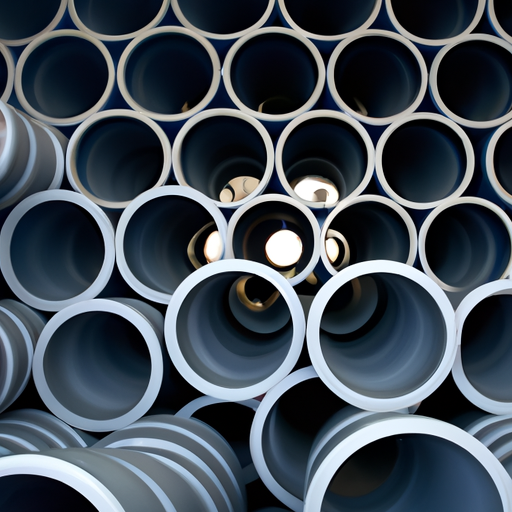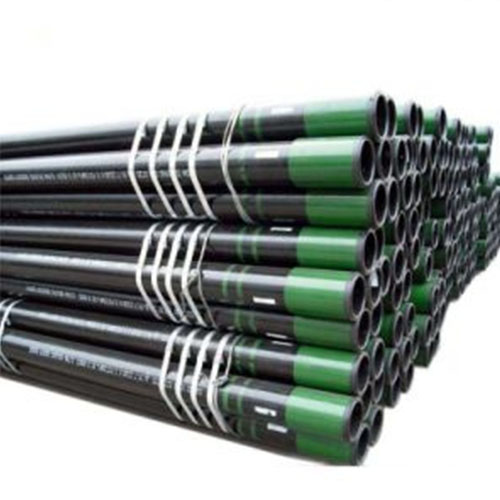Inhoudsopgave
Verschillen tussen koolstofstaal API 5CT-kwaliteiten (K55, J55, N80, L80, P110)
Als we verdergaan met N80, wordt deze kwaliteit gekenmerkt door zijn hogere treksterkte en verbeterde weerstand tegen corrosie. N80 is geschikt voor putten met gemiddelde diepte en biedt goede prestaties in licht corrosieve omgevingen. Aan de andere kant is L80 een koolstofstaal van hogere kwaliteit dat uitstekende mechanische eigenschappen biedt, waardoor het geschikt is voor diepere putten en zwaardere bedrijfsomstandigheden.
P110 is een van de koolstofstaalsoorten met de hoogste sterkte in de API 5CT-specificatie. Het biedt superieure mechanische eigenschappen en is zeer geschikt voor diepe en hogedrukputten. P110 staat bekend om zijn uitstekende taaiheid en weerstand tegen scheuren, waardoor het een populaire keuze is voor uitdagende booromgevingen.

Bij het selecteren van de juiste koolstofstaalsoort voor behuizings- en buistoepassingen moeten verschillende factoren in overweging worden genomen. Deze omvatten de diepte van de put, de druk- en temperatuuromstandigheden, de corrosiviteit van de omgeving en de gewenste mechanische eigenschappen.
Het is essentieel om de API 5CT-specificatie en andere relevante industrienormen te raadplegen om naleving van veiligheids- en prestatie-eisen te garanderen . Bovendien kan een nauwe samenwerking met materiaalleveranciers en fabrikanten helpen bij het selecteren van de meest geschikte koolstofstaalsoort voor een specifieke toepassing.
Concluderend: de verschillen tussen koolstofstaal API 5CT-kwaliteiten zoals K55, J55, N80, L80 en P110 liggen in hun mechanische eigenschappen, corrosieweerstand en geschiktheid voor verschillende putomstandigheden. Door deze verschillen te begrijpen en de specifieke operationele vereisten in overweging te nemen, kunnen ingenieurs en operators weloverwogen beslissingen nemen bij het selecteren van de meest geschikte koolstofstaalkwaliteit voor behuizingen en buizen bij de exploratie en productie van olie en gas.
Belang van koppelingen van pups bij het gebruik van oliebehuizingsbuizen
Bovendien draagt het gebruik van API 5CT koolstofstalen pup joint-koppelingen bij aan de duurzaamheid van olie- en gasactiviteiten. Door hoogwaardige materialen te gebruiken die zijn ontworpen om de ontberingen van booractiviteiten te weerstaan, kunnen bedrijven de impact van hun activiteiten op het milieu minimaliseren. De lange levensduur en betrouwbaarheid van deze koppelingen verminderen de behoefte aan frequente vervangingen, waardoor de verspilling wordt verminderd en de hulpbronnenefficiëntie wordt bevorderd.
Concluderend spelen koppelingen met koppelingen een cruciale rol bij het werken met oliemantelbuizen door te zorgen voor een naadloze verbinding van mantel- en buissecties, het handhaven van de structurele integriteit en het verbeteren van de operationele efficiëntie. Het gebruik van koolstofstalen materialen zoals API 5CT K55, J55, N80, L80 en P110 in deze koppelingen biedt duurzaamheid, weerstand tegen zware omstandigheden en ecologische duurzaamheid. Als cruciaal onderdeel van het oliebronsysteem illustreren pup-jointkoppelingen het belang van kwaliteit en betrouwbaarheid bij de exploratie en productie van olie- en gasbronnen.
Pup joint couplings play a crucial role in oil casing tubing operations, particularly in the context of OCTG (Oil Country Tubular Goods) applications. These couplings, made from high-quality Carbon Steel materials such as API 5CT K55, J55, N80, L80, and P110, are essential components that connect two pieces of casing or tubing together. Their significance lies in ensuring the integrity and efficiency of the entire oil well system.
In the realm of oil and gas drilling, the seamless connection of casing and tubing is paramount for maintaining the structural integrity of the wellbore. Pup joint couplings serve as the link between individual sections of casing or tubing, allowing for a continuous and secure flow of oil or gas from the reservoir to the surface. By providing a tight seal and preventing leaks or structural failures, these couplings contribute to the overall Safety and productivity of drilling operations.
One of the key advantages of using carbon steel pup joint couplings is their durability and resistance to harsh environmental conditions. The API 5CT specifications ensure that these couplings meet stringent quality standards, making them suitable for demanding oil and gas exploration environments. Whether operating in high-pressure or high-temperature conditions, carbon steel pup joint couplings offer reliability and longevity, reducing the risk of costly downtime or equipment failure.
Furthermore, the versatility of pup joint couplings allows for flexibility in well completion and maintenance activities. In situations where adjustments to the casing or tubing length are required, these couplings enable quick and efficient modifications without the need for extensive reinstallation. This adaptability not only saves time and resources but also enhances the overall operational efficiency of oil well systems.

Moreover, the use of API 5CT carbon steel pup joint couplings contributes to the sustainability of oil and gas operations. By utilizing high-quality materials that are designed to withstand the rigors of drilling activities, companies can minimize the environmental impact of their operations. The longevity and reliability of these couplings reduce the need for frequent replacements, thereby decreasing waste and promoting resource efficiency.
In conclusion, pup joint couplings play a vital role in oil casing tubing operations by ensuring the seamless connection of casing and tubing sections, maintaining structural integrity, and enhancing operational efficiency. The use of carbon steel materials such as API 5CT K55, J55, N80, L80, and P110 in these couplings offers durability, resistance to harsh conditions, and environmental sustainability. As a critical component of the oil well system, pup joint couplings exemplify the importance of quality and reliability in the exploration and production of oil and gas resources.

